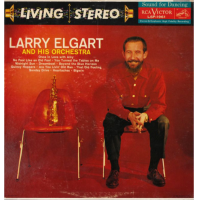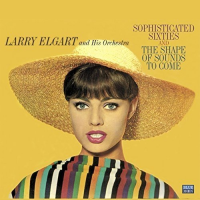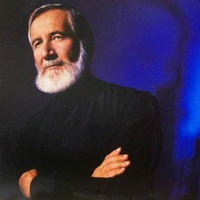Home » Jazz Musicians » Larry Elgart
Larry Elgart
Lawrence Joseph Elgart (March 20, 1922 – August 29, 2017) was an American jazz bandleader. With his brother Les, he recorded "Bandstand Boogie", the theme to the long-running dance show American Bandstand.
Elgart was born in 1922 in New London, Connecticut, four years younger than his brother, Les. Their mother was a concert pianist; their father played piano as well, though not professionally. Both brothers began playing in jazz ensembles in their teens, and while young Larry played with jazz musicians such as Charlie Spivak, Woody Herman, Red Norvo, Freddie Slack and Tommy Dorsey.
In the mid-1940s, Les and Larry started up their own ensemble, hiring Nelson Riddle, Bill Finegan and Ralph Flanagan to arrange tunes for them. Their ensemble was not successful, and after a few years, they scuttled the band and sold the arrangements they had commissioned to Tommy Dorsey. Both returned to sideman positions in various orchestras.
In 1953, Larry met Charles Albertine and recorded two of his experimental compositions, "Impressions of Outer Space" and "Music for Barefoot Ballerinas". Released on 10" vinyl, these recordings became collector's items for fans of avant-garde jazz, but they were not commercially successful at the time. Larry and Albertine put together a more traditional ensemble and began recording them using precise microphone placements, producing what came to be known as the "Elgart sound". This proved to be very commercially successful, and Larry enjoyed a run of successful albums and singles in the 1950s.
In 1954, the Elgarts left their permanent mark on music history in recording Albertine's "Bandstand Boogie," for the legendary television show originally hosted by Bob Horn, and two years later, Dick Clark. Clark took the show national, to ABC-TV, in 1956 and remained host for another 32 years. Variations of the original surfaced as the show's theme in later years. Les and Larry reunited in 1963, but it would not last long. Les moved to Texas and performed for the rest of his life with The Les Elgart Orchestra while Larry continued to perform and record regularly for decades.
Larry's biggest exposure came in 1982, with the smash success of a recording called "Hooked on Swing". The instrumental was a medley of swing jazz hits - "In the Mood", "Cherokee", "Don't Sit Under the Apple Tree", "American Patrol", "Sing, Sing, Sing", "Don't Be That Way", "Little Brown Jug", "Opus #1", "Zing Went the Strings of My Heart" and "A String of Pearls" - that became so popular it even cracked the US Billboard Pop Singles chart (at #31) and Adult Contemporary chart (#20).[2] This was the final hit for any artist in the year-long "medley craze," that lasted from 1981 to 1982. Billed as "Larry Elgart and His Manhattan Swing Orchestra," the LP from which the tune was taken hit #24 on the US charts. The follow-up, Hooked on Swing 2, debuted at #89 on the album charts, and soon after Larry was back to the jazz touring circuit. He continued to tour internationally and record into the 2000s.
Read moreTags
Larry Elgart (1922-2017)

Source:
JazzWax by Marc Myers
Larry Elgart, an alto saxophonist and enterprising and tireless big-band leader whose major success began at the very moment when nearly all other swing orchestras were arthritic relics and the word “band" typically referred to four guys with long hair playing electric instruments and a drum set, died on August 29. He was 95. In the 1950s and '60s, Elgart frequently teamed with his trumpet-playing brother, Les, on albums and in concert, drawing deserved comparisons to other Swing-era siblings including ...
read more
Larry Elgart in the Early '60s

Source:
JazzWax by Marc Myers
Larry Elgart deserves respect, and it looks like he's finally receiving some with the release of a new two-fer from Blue Moon Records—Larry Elgart and His Orchestra: Sophisticated Sixties (1960) and The Shape of Sounds to Come (1961). I've never been a huge fan, but then again I never gave Larry Elgart or his bandleader brother Les much of a chance. Instead, I was more fond of the Maynard Ferguson band during this early '60s period, an orchestra that still ...
read more













